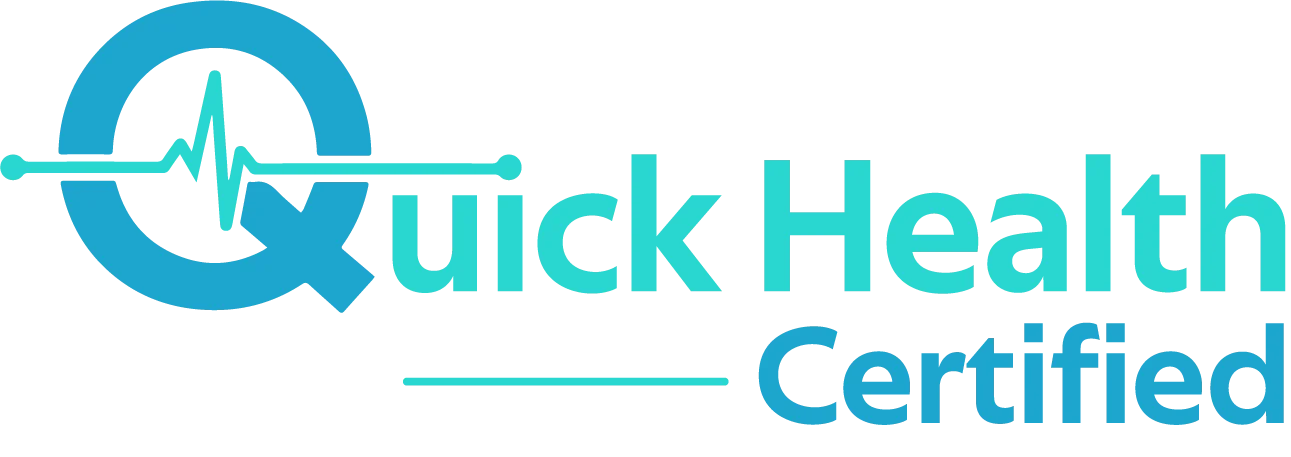Mon-Fri 9am to 6pm CST
by John Doe
31-July-2024

What is a What are Patient Care Technicians: All you need to know
The healthcare world is a dynamic one – filled with individuals dedicated to improving patient lives.
Among these important roles, often overlooked, is one called a Patient Care Technician (PCT), who provide essential support to medical professionals and play a crucial role in ensuring patient comfort and well-being.
So, if you’re someone drawn to a career in healthcare and are wondering what exactly is a patient care technician is, this guide is for you.
Explore the important role of PCTs, their duties, the education and certifications needed to become one, and what you can expect in terms of salary – all in this post.
What Does a Patient Care Technician Do?
Patient Care Technicians, also known as patient care techs or PCTs, play a vital role in patient care settings, primarily in hospitals, nursing homes, and rehabilitation centers. Their responsibilities are diverse and often involve assisting patients with daily activities and helping medical staff perform procedures.
A PCT’s duties can vary based on where they work and the patients they care for, but some of the most common responsibilities include:
Patient Care
- Monitoring Vital Signs:One of the main duties of a PCT is to check and record patients' vital signs, such as blood pressure, pulse rate, temperature, and respiration rate.
- Assisting with Daily Activities: PCTs help patients with personal care, such as assisting individuals in bathing, grooming, dressing, and eating/feeding. For patients with mobility issues, this type of help is a must for maintaining patients’ quality of life.
- Providing Comfort & Emotional Support:Patients often deal with pain or illness, and a PCT’s role in offering emotional support is just as important as their physical care. And that’s why their job description entails making sure patients are as comfortable as possible during their stay.
- Assisting with Medical Procedures: In some healthcare settings – like in a hospital – a PCT may help assist medical professionals with minor procedures, such as drawing blood, catheter insertion, or prepping patients for surgeries.

Technical Skills
- Phlebotomy: Drawing blood from patients for various tests.
- Electrocardiogram (ECG) Testing: Performing ECGs to monitor heart condition.
- Basic Wound Care: Taking care of basic wounds under a nurse’s supervision.
- Urinary Catheter Care: Inserting and maintaining urinary catheters.
Other Responsibilities
- Recording Patient Information:PCTs often help with the administrative side of the healthcare system as well. For example, they may need to enter patient data into electronic medical records or EMRs and make sure everything is properly documented.
- Maintaining a Clean and Safe Environment: Ensuring patient rooms and common areas are clean and organized.
- Inventory Management: Maintaining a proper stock of medical equipment and supplies.
- Communication and Collaboration: Effectively communicating with patients, families, and other members of the healthcare team.
How to Become a Patient Care Technician
Becoming a patient care technician doesn’t require extensive schooling, making it an attractive career choice for those looking to enter the healthcare field quickly.
And while aspiring PCTs do need formal education and training programs, requirements vary by state and employer.
But on the whole, here’s what’s needed to become a patient care technician:
-
Education
Most PCTs hold at least a high school diploma or equivalent which may take around 4 years or so.
However, those who want to take a shorter route may choose to complete a patient care technician training program physically or go the online route and complete an online patient care technician course, which typically lasts between 4 to 6 months.
And the best part: it’s self-paced so students can easily complete it at the own pace
-
Certifications
While not always mandatory, its highly recommended. And obtaining a patient care technician certification – especially if it’s from well-renowned platforms like Quick Health Certified can greatly help increase your career prospects and show your competence to potential employers.
In many states, certification is a requirement for PCTs working in hospitals or nursing homes.
-
Hands-on Training
After completing the coursework, look for opportunities to get experience through internships, volunteer work, or entry-level positions in a healthcare setting.
This helps prepare fresh grads while also giving them a feel of what it’s like working with patients in a real setting.
Patient Care Technician Training
PCT training programs typically cover a range of must-know topics, including:
- Human Anatomy and Physiology: it’s the understanding the structure and function of the human body.
- Medical Terminology: Learning and using medical jargon.
- Infection Control:Practice of proper hand hygiene and infection control techniques.
- Patient Safety: Implementation of safety measures to prevent falls, injuries, and other adverse events.
- Basic Life Support (BLS): Learning CPR and other lifesaving techniques.
- Phlebotomy Techniques: Mastering the skills required for blood drawing.
- ECG Interpretation: Learning to read and interpret ECG results.
- Communication and Interpersonal Skills: eveloping effective communication skills for interacting with patients, families, and colleagues.
-
Continuing Education
To maintain certification, PCTs must complete continuing education every few years. This ensures that their skills stay up-to-date with the latest healthcare advancements and standards.

How Much Does a PCT Make?
The US Bureau of Labor Statistics (BLS) does not provide a separate list for patient care technicians (PCTs). Instead, they provide data for nursing assistants, which was $38,200 in May 2023. And as for the current hourly rate, as of December 1st 2024, it typically falls between $15 and $19.
As for the job outlook for patient care technicians, it shows promise as its projected growth rate from 2023-2033 is 4% - about as fast as average for other occupations.
However, the aspect of salary can vary depending on factors such as experience, location, and level of certification.
Let’s talk about that in detail below:
- Location: PCTs in large metropolitan areas, especially in states like California or New York, can expect to earn higher wages due to the increased demand for healthcare workers and the higher cost of living.
- Experience: As with any job, those with more experience tend to earn higher salaries. Entry-level PCTs might start at the lower end of the salary range, while those with 5 or more years of experience can earn towards the higher end.
- Certification: Certification can make a significant difference in salary. Certified Patient Care Technicians typically earn about 10-15% more than their non-certified peers.
The demand for qualified PCTs is only expected to grow because of the aging population, increasing healthcare needs, and advancements in medication and technology.
Why Consider a Career as a Patient Care Technician?
A career as a PCT offers a range of benefits that make it an appealing choice for many. Here are some key reasons why:
- Job Satisfaction: Being a PCT gives you the opportunity to make a direct impact on patients’ lives. From assisting with hygiene and mobility to offering emotional support, it can bring a sense of fulfillment that’s hard to match in other professions. For those who enjoy helping others and want to have a meaningful impact on people's lives, this role offers a deep sense of purpose rather than just a job.
- Career Growth: The role of a PCT is not only vital in healthcare, but also serves as a stepping stone for those looking to advance in the field. Many PCTs go on to pursue further education and certifications, which can lead to roles like Licensed Practical Nurse (LPN) or Registered Nurse (RN).
- Flexible Work Schedules: As a PCT, you have the flexibility to work in various healthcare settings, including hospitals, nursing homes, clinics, and so on. Many of these places offer a range of shifts, which can be a great benefit if you're looking for the type of work fits around your personal life
- Strong Job Market and Job Security: The healthcare industry is constantly growing, and with that, comes an increasing demand for individuals focused on patient care. This demand makes for a steady job market, which means more opportunities for employment and greater job security in the long run.
Conclusion
While the role of patient care technicians might not seem that big a deal, they play a crucial role in the overall healthcare system – from patients to healthcare professionals.
If you are compassionate, patient, and possess a strong work ethic, a career as a PCT may be the perfect fit for you.
Speaking of which, if you're interested in pursuing a career as a PCT, Quick Health Certified offers easy, self-paced online healthcare courses like Patient Care Technician Bootcamps to help you take the first step.
FAQs
Let's Meet
Please provide us your email address and we'll connect you with a member of our admission team.
Recent Posts
Allied Health in the Rearview Mirror:
What have we Learned over past 10 Years?
30-Jan-2024
Allied Health in the Rearview Mirror:
What have we Learned over past 10 Years?
30-Jan-2024
Allied Health in the Rearview Mirror:
What have we Learned over past 10 Years?
30-Jan-2024
Allied Health in the Rearview Mirror:
What have we Learned over past 10 Years?
30-Jan-2024
Allied Health in the Rearview Mirror:
What have we Learned over past 10 Years?
30-Jan-2024



 Chat
Chat